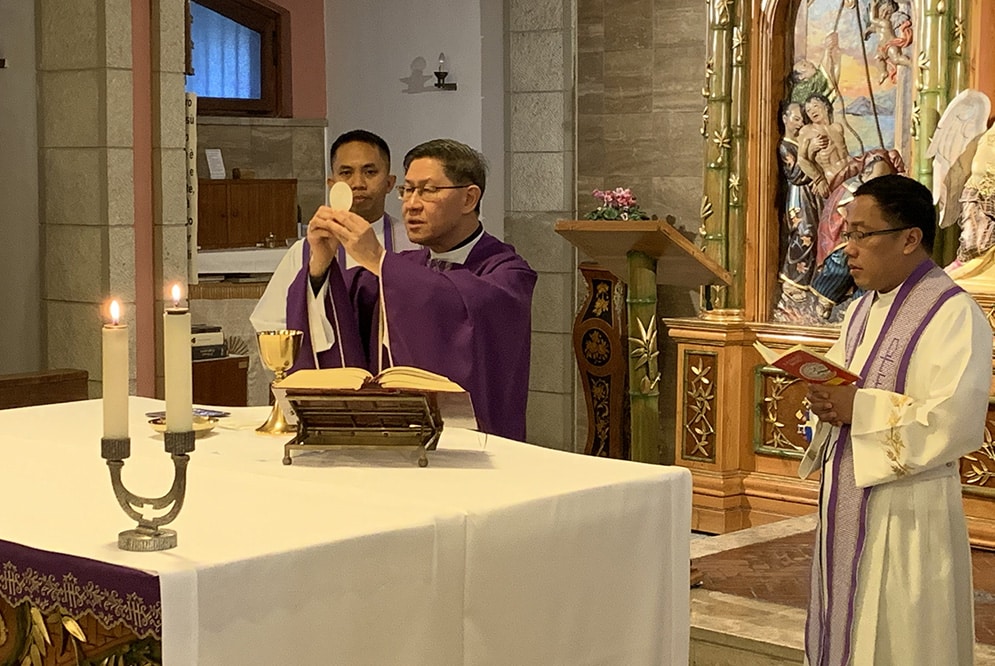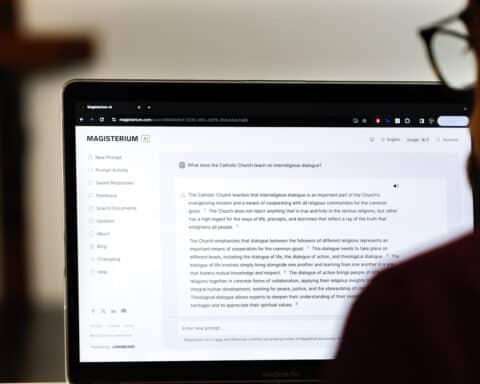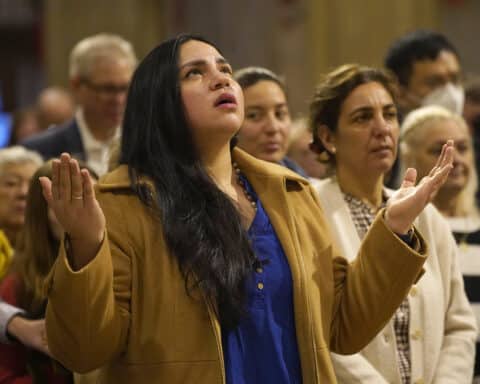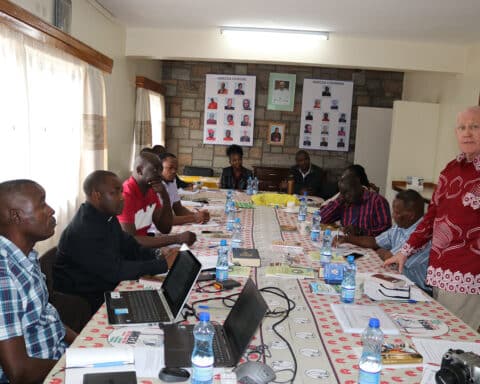VATICAN CITY (CNS) — Starting a new job always involves a learning curve, but Filipino Cardinal Luis Antonio Tagle got much more than he bargained for when he moved to Rome in February to begin his duties as prefect of the Congregation for the Evangelization of Peoples.
Not only did he have a new position after being the archbishop of Manila for almost nine years, his first month coincided with the start of Italy’s lockdown and global travel restrictions because of the coronavirus pandemic.
Cardinal Tagle is living the lockdown — and working mostly from home — at Rome’s Pontifical Filipino College where, he said, “I feel safe and supported by a community of Filipino, Asian and African young priests studying in Rome. I hope my presence among them also makes the CEP (Congregation for the Evangelization of Peoples) close to them, since their countries and dioceses are served by this dicastery.”
The cardinal concelebrates Mass each morning with the resident priests and, each Sunday, he serves as the principal celebrant and homilist for a Mass livestreamed on Facebook and followed by thousands of Filipinos around the world.
“Coming to Rome for a universal mission at a time when the lockdown occurs — I am still in awe at the surprises of God,” the cardinal said April 1 in an email response to questions.
“I bring this paradox to reflection and prayer,” he said. “The situation is reeducating me about the dynamic tension between the local and the universal.”
Global reaction to the pandemic has shown “opportunities for worldwide collaboration but also threats to solidarity,” he said.
And, as the chief-in-charge of the Vatican’s office for evangelization, he said he is seeing great potential for sharing the Gospel in what Catholics, their priests, parishes and bishops are doing with social media in the absence of in-person Masses and meetings.
With local parish activities on hold, “I am fascinated with the renewed appreciation of the role of families, schools and small communities in evangelization,” the cardinal said. “Liturgy, ordained ministry and popular religiosity are also being reimagined but with a more missionary thrust.”
He and the congregation staff have taken note, he said.
Cardinal Tagle’s work-from-home regime applies not only to his new role as congregation prefect, but also to his continuing service as president of Caritas Internationalis, the Vatican-based umbrella organization for national Catholic charities around the world.
How doing both at the same time works out is something he said will be evaluated as time goes on, but “most of the countries served by the Congregation for the Evangelization of Peoples are the same countries where Caritas has a vibrant missionary presence.”
“We should not forget that in many parts of the world, especially among non-Christian communities, the humanitarian service of charity done by Caritas is often the first encounter of people with the person of Jesus, the Gospel and the church,” he said. “Evangelization and charity come together.”
And while it is necessary and good to focus on the pandemic right now, he said, at the same time “we should reflect and pray over the experience to find its meaning for us now and in the future.”
A few of the things he said he’s reflected on include:
— The fact that with such a huge interruption of the global economy, “new forms of poverty will emerge. We should prepare now to assist the new poor in order to avoid forms of exploitation and violence. The outpouring of compassion that we have seen so far needs to be encouraged into the post-pandemic future.”
— “We have experienced powerful forms of connectivity through the internet. School instruction, conferences, board meetings, scientific exchange, emotional first aid, humor, artistic renditions, prayer etc. have been sustained by new and creative forms of human connectivity. We can continue reaping and developing their humanizing fruits for the common good.”
— “We might get used to physical distancing and lose the social or humanitarian reason for it. We should be cautious that the lockdown, quarantine and distancing not develop into a culture of isolation, indifference and prejudice.”
— “Ironically,” measures to contain the coronavirus have “made the air purer, the skies bluer, our hands cleaner, our streets and homes ‘safer.’ A deadly virus has made us behave more responsibly toward ourselves, family, community and creation. I hope when the virus is gone, our good habits would continue.”
— With the churches closed, many people are realizing just how important faith and prayer are in their lives. “A virus mirrored to us our fragility, limitations and insufficiency. This is quite humiliating for a people gone mad with pride and self-adulation. But the memory of the virus must be kept alive to keep us humble and hopeful.”





